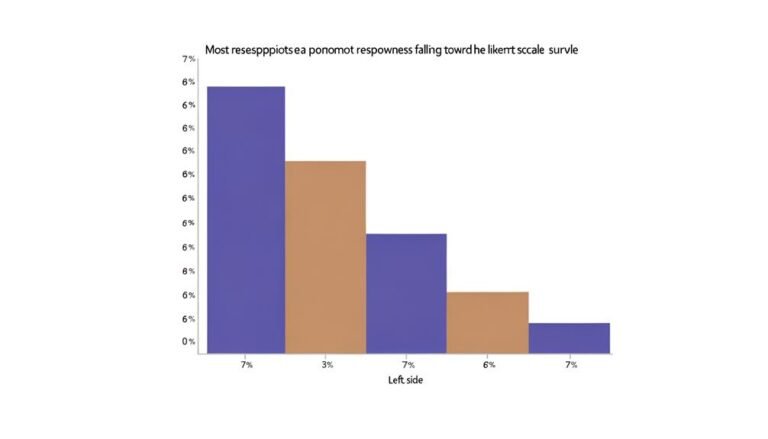Healthcare Ethics: Navigating Complex Moral Terrain
Within the intricate realm of healthcare ethics lies a labyrinth of moral dilemmas that challenge practitioners to navigate with precision and integrity. As healthcare professionals grapple with complex ethical decisions that can have profound implications for patients and society at large, the need for a robust ethical framework becomes increasingly evident.
By exploring the nuanced interplay between ethical principles, legal considerations, and moral obligations, this discussion aims to shed light on the critical importance of upholding ethical standards in healthcare practice. Join us as we unravel the multifaceted terrain of healthcare ethics, where every decision carries weight and every choice reverberates far beyond the confines of the clinic.
Key Takeaways
- Healthcare ethics involves managing intricate moral dilemmas in the medical field.
- Ethical considerations are paramount for effective decision-making in healthcare settings.
- Upholding ethical business practices in healthcare is a shared organizational and personal responsibility.
- Education on ethical principles is crucial for navigating the complex moral landscape of healthcare.
Importance of Healthcare Ethics
In the realm of healthcare, the significance of ethical considerations cannot be overstated as they serve as the foundation for fostering trust, ensuring quality care, and upholding professional integrity. Ethical decision-making is paramount in healthcare settings, where choices can have profound effects on patients, staff, and organizational reputation.
Upholding high ethical standards not only safeguards the well-being of individuals but also contributes to the overall credibility and trustworthiness of the healthcare institution. Organizations that prioritize ethical decision-making establish a culture of accountability and transparency, which are crucial for maintaining public trust and confidence.
Ethical Dilemmas in Healthcare
Navigating ethical dilemmas in healthcare requires a careful examination of conflicting values and principles inherent in complex decision-making scenarios. Ethical decision-making in healthcare involves weighing the moral responsibility towards patients, staff, and the broader community.
Healthcare professionals often encounter situations where ethical considerations intersect with medical practices, organizational policies, and legal obligations. Balancing the best interests of individual patients with the greater good of society can present significant challenges.
Upholding ethical standards in healthcare requires a deep understanding of professional ethics, moral values, and legal frameworks. By fostering a culture of integrity and moral responsibility, healthcare providers can navigate these dilemmas with transparency and accountability, ensuring the highest standards of care for all stakeholders.
Business Ethics in Healthcare
Balancing ethical considerations with the business aspects of healthcare delivery is essential for maintaining integrity and trust within the industry. When addressing business ethics in healthcare, several crucial factors come into play:
- Ethical Compliance: Ensuring that all business practices align with ethical standards and regulations.
- Organizational Integrity: Upholding a strong sense of honesty, transparency, and ethical behavior within the healthcare organization.
- Leadership Accountability: Holding leaders accountable for promoting and enforcing ethical practices throughout the organization.
- Stakeholder Trust: Building and maintaining trust with stakeholders by demonstrating a commitment to ethical conduct and organizational values.
These elements collectively contribute to a culture of ethical compliance and organizational integrity in healthcare businesses.
Challenges in Healthcare Ethics
Amidst the intricate landscape of healthcare ethics, numerous challenges arise that necessitate careful consideration and strategic resolution. Ethical decision-making in healthcare is a complex process influenced by various factors such as conflicting values, patient autonomy, and resource allocation.
These challenges can significantly impact organizational reputation, as decisions made in healthcare settings often have far-reaching consequences. Maintaining ethical standards in the face of these challenges is crucial for upholding trust with patients, staff, and the community.
Organizations must navigate these ethical dilemmas thoughtfully to ensure that decisions align with their values and principles. Addressing these challenges requires a deep understanding of the ethical dimensions involved in decision-making processes and a commitment to upholding ethical practices in healthcare delivery.
Developing Ethical Frameworks
In the realm of healthcare ethics, the establishment of robust ethical frameworks is imperative for guiding decision-making processes and ensuring adherence to ethical standards. When developing ethical frameworks, several key components should be considered:
- Clear Ethical Guidelines: Establishing clear and comprehensive ethical guidelines is essential for providing healthcare professionals with a framework to navigate complex ethical dilemmas.
- Transparent Decision-Making Frameworks: Implementing transparent decision-making frameworks helps ensure that ethical considerations are at the forefront of every decision.
- Consistent Ethical Standards: Maintaining consistency in ethical standards across all levels of healthcare organizations promotes a culture of ethical behavior.
- Regular Ethical Reviews: Conducting regular reviews of ethical frameworks allows for adjustments to be made in response to evolving ethical challenges and practices.
Education for Ethical Practice
Education plays a pivotal role in equipping healthcare professionals with the necessary ethical knowledge and skills to navigate complex decision-making processes within the healthcare industry. Ethical education is fundamental in fostering professional conduct and ensuring that healthcare practitioners uphold ethical standards in their practice.
Providing curricula that cover ethics, morals, and laws is beneficial for healthcare professionals to develop a strong foundation in ethical decision-making. By integrating ethical values into educational programs, healthcare professionals can better understand the importance of ethical considerations in their daily practice.
Ultimately, education serves as a bridge between theoretical knowledge and practical application, empowering healthcare professionals to navigate the intricate ethical terrain they encounter in their roles.
Future Trends in Healthcare Ethics
The evolving landscape of healthcare ethics presents a dynamic terrain shaped by emerging trends and challenges in the industry.
- Integration of Advancing Technology: The use of artificial intelligence and telemedicine raises questions about patient privacy and the potential dehumanization of care.
- Incorporation of Global Perspectives: Healthcare ethics must consider diverse cultural norms and values, requiring a more inclusive approach to decision-making processes.
- Ethical Implications of Big Data: The ethical use of vast amounts of patient data for research and treatment purposes necessitates stringent privacy protections and transparency.
- Enhanced Focus on Environmental Ethics: As climate change impacts healthcare delivery, ethical considerations around sustainability and resource allocation become increasingly significant.
Conclusion
In conclusion, the intricate interplay between ethics, morals, and the law in healthcare underscores the essential role of ethical decision-making processes.
By navigating the complex moral terrain and staying abreast of evolving ethical considerations, healthcare providers can uphold the integrity of their practices.
Education and the application of ethical principles are paramount in developing ethical frameworks that guide professional ethos and ensure ethical business conduct in the healthcare sector.







